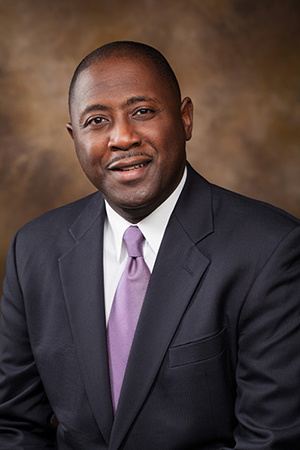
The University of Arkansas Teaching Academy recently elected six new Fellows and named the recipient of the 2014 Dr. John and Mrs. Lois Imhoff Award for Outstanding Teaching and Student Mentorship.
The Imhoff Award winner is Calvin White Jr., associate professor of history and director of African and African American Studies. White teaches a number of courses from freshman to graduate levels, including AAST 1003: Introduction to African and African American Studies. In addition, White developed AAST 2023: The African American Experience, which has been approved as a humanities elective in the university core.
He has received numerous awards in recognition of excellence in teaching and student mentoring, including the Fulbright College’s John E. King Award for Outstanding Service, the Fulbright College Outstanding Advisor Award, and the Student Alumni Board’s Outstanding Teaching Award, among others. Colleagues and former students note White’s high expectations, the rigor of his courses, and his dedication to student success. As one colleague wrote, “Calvin is the rare professor who is able to see enormous potential in every student with whom he interacts, even if they do not at first see that potential themselves, and there have been countless students who have had their lives changed by the care, attention, and encouragement that Calvin has given them.”
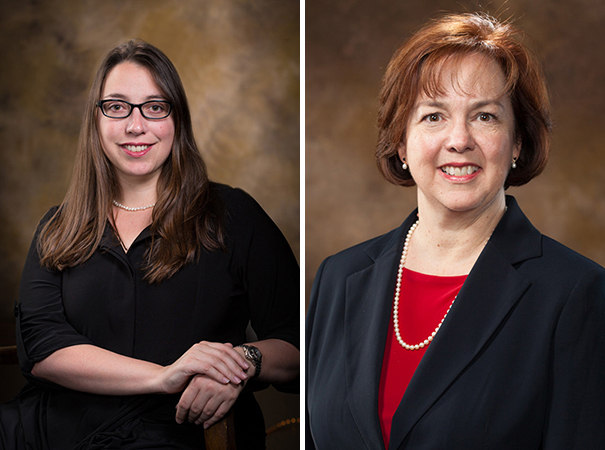 Lisa Corrigan and Letitia Pohl Lisa Corrigan and Letitia Pohl |
In addition to the Imhoff Award recipient, the Teaching Academy also recognized two finalists, Lisa Corrigan, assistant professor of communication, and Letitia Pohl, clinical assistant professor of industrial engineering. The Imhoff Award, presented annually by the Teaching Academy, recognizes faculty who excel in teaching introductory courses and in mentoring students.
The 2014 Teaching Academy Fellows are Mark Arnold, associate professor of mathematical sciences; Susan Bristow, clinical assistant professor of information systems; Paul Calleja, clinical associate professor of kinesiology; Laurence Hare, assistant professor of history; Christian Hofer, associate professor of supply chain management; and Mary Elizabeth Matthews, the Sidney J. Davis Jr. Professor of Business and Commercial Law.
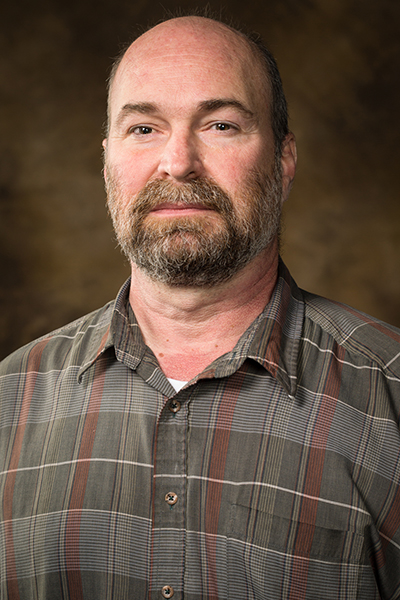 Mark E. Arnold began his career at the University of Arkansas in fall 1993 after earning his doctorate in mathematical sciences at Northern Illinois University. Since then, Arnold has taught a wide variety of courses ranging from elementary courses for non-majors to advanced graduate courses and has advised both undergraduate researchers and doctoral students. Arnold received a Fulbright College Master Teacher Award in 2013 and was named an Outstanding Mentor by the UA Office of Nationally Competitive Grants in 2011, 2012, and 2013.
Mark E. Arnold began his career at the University of Arkansas in fall 1993 after earning his doctorate in mathematical sciences at Northern Illinois University. Since then, Arnold has taught a wide variety of courses ranging from elementary courses for non-majors to advanced graduate courses and has advised both undergraduate researchers and doctoral students. Arnold received a Fulbright College Master Teacher Award in 2013 and was named an Outstanding Mentor by the UA Office of Nationally Competitive Grants in 2011, 2012, and 2013.
Arnold’s teaching philosophy values an open, informal, but rigorous teaching environment, curiosity over performance, and student interaction with the subject matter. According to one colleague, “Mark is well liked and appreciated by his students despite the fact that he is a demanding teacher. He establishes rapport with his students, involves his students, and has the rare ability to be able to explain difficult, abstract ideas in the classroom.”
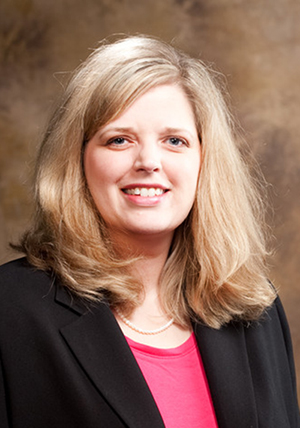 Susan E. Bristow holds four degrees from the University of Arkansas including the M.B.A. (2002) and the Ed.D. (2013). She joined the information systems faculty in 2002 and also serves as assistant department head. Bristow teaches one or more courses at each level from introductory freshman courses to advanced courses at the master’s level, earning consistently high student course evaluations. She has received a number of awards for excellence in teaching and student mentoring including the Walton College Outstanding Teaching Award (2014), the ASG and RIC Faculty of Year Award (2013), and was named Outstanding Faculty Advisor by the Provost’s Office and the Academic Advising Council (2013).
Susan E. Bristow holds four degrees from the University of Arkansas including the M.B.A. (2002) and the Ed.D. (2013). She joined the information systems faculty in 2002 and also serves as assistant department head. Bristow teaches one or more courses at each level from introductory freshman courses to advanced courses at the master’s level, earning consistently high student course evaluations. She has received a number of awards for excellence in teaching and student mentoring including the Walton College Outstanding Teaching Award (2014), the ASG and RIC Faculty of Year Award (2013), and was named Outstanding Faculty Advisor by the Provost’s Office and the Academic Advising Council (2013).
As a teacher, Bristow combines genuine care for students with a determination that they master the skills necessary for academic and career success. According to one colleague, “Dr. Bristow truly considers ‘students first’ and goes way above and beyond normal expectations to ensure that each student gets the best possible education in her courses.”
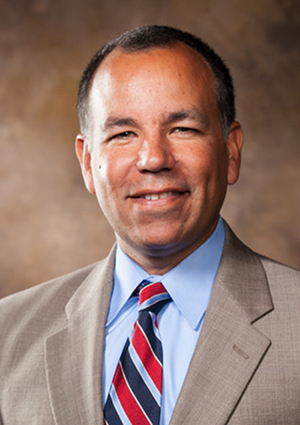 Paul Calleja completed his doctorate in kinesiology from the University of Arkansas in 2004 and joined the kinesiology faculty in 2006. Calleja teaches the introductory course in motor development required of all kinesiology majors and has recently developed an online version of the course to serve distance education students. According to a faculty colleague, Calleja is known around his department as “the ‘go to guy’ for help with online classes.”
Paul Calleja completed his doctorate in kinesiology from the University of Arkansas in 2004 and joined the kinesiology faculty in 2006. Calleja teaches the introductory course in motor development required of all kinesiology majors and has recently developed an online version of the course to serve distance education students. According to a faculty colleague, Calleja is known around his department as “the ‘go to guy’ for help with online classes.”
Calleja also redesigned PHED 3903: Physical Education for Special Populations as an intersession course, providing students with hands-on clinical experiences working with special needs students. According to a student completing the course, “I learned a lot and became comfortable interacting with kids that have disabilities.” Calleja work in this course was recognized with the College of Education and Health Professions’ 2014 Innovative Teaching Award.
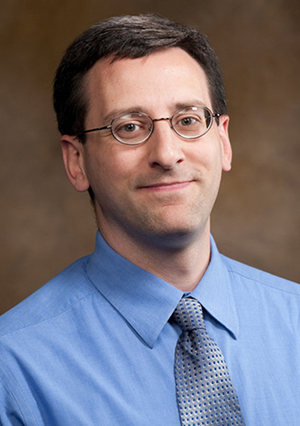 Laurence Hare earned his doctorate in history at the University of North Carolina in Chapel Hill and has been at the University of Arkansas since 2010. In addition to teaching undergraduate and graduate courses, primarily in European history, Hare also serves as both the honors adviser and director of undergraduate studies for the Department of History. In 2014, Hare received both the Master Teacher Award from the Fulbright College and the Faculty Gold Medal Award from the U of A Office of Nationally Competitive Awards. He is a three-time recipient (2012, 2013 and 2014) of the Outstanding Mentor Award from the Office of Nationally Competitive Awards.
Laurence Hare earned his doctorate in history at the University of North Carolina in Chapel Hill and has been at the University of Arkansas since 2010. In addition to teaching undergraduate and graduate courses, primarily in European history, Hare also serves as both the honors adviser and director of undergraduate studies for the Department of History. In 2014, Hare received both the Master Teacher Award from the Fulbright College and the Faculty Gold Medal Award from the U of A Office of Nationally Competitive Awards. He is a three-time recipient (2012, 2013 and 2014) of the Outstanding Mentor Award from the Office of Nationally Competitive Awards.
Colleagues praise Hare as a “remarkable, inspiring teacher” and describe his course preparation as “exemplary.” Hare’s colleagues also note his dedication to one-on-one instruction and student mentoring, writing, “In his interactions with students, he has endless time, energy, and enthusiasm. It is no exaggeration to say that I remain in awe of Laurence’s ability and passion for teaching in this individualized setting.”
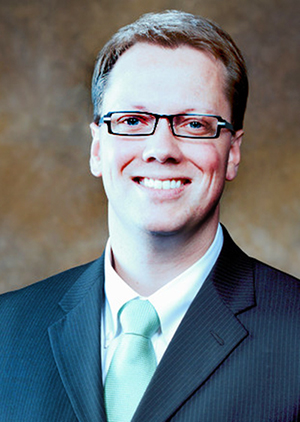 Christian Hofer joined the Department of Supply Chain Management in 2007 upon completion of his doctorate at the University of Maryland. He teaches a variety of courses in logistics and supply chain management to undergraduate and graduate students in via traditional on-campus and distance education technologies. He also serves as the department’s director of doctoral studies. In 2014, Hofer received the 2014 Walton College All Around Faculty Member Award, recognizing excellence in teaching, research, and service.
Christian Hofer joined the Department of Supply Chain Management in 2007 upon completion of his doctorate at the University of Maryland. He teaches a variety of courses in logistics and supply chain management to undergraduate and graduate students in via traditional on-campus and distance education technologies. He also serves as the department’s director of doctoral studies. In 2014, Hofer received the 2014 Walton College All Around Faculty Member Award, recognizing excellence in teaching, research, and service.
Students and colleagues praise Hofer’s dedication to student success and his ability to explain complex topics in ways that make sense to students. In the words of one student, “I’m not sure where to start other than saying this is probably the best class I have taken in the WCOB. Dr. Hofer is enthusiastic, organized, knowledgeable, and has a knack for breaking down complex material into easily understandable portions.” According to a colleague, “Christian exemplifies the ideals of the Teaching Academy with his commitment to changing students’ lives both now with his teaching and in the future with his expectations of excellence.”
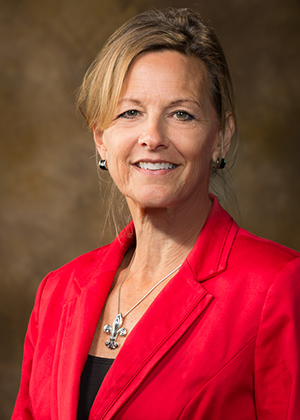 Mary Elizabeth Matthews holds two degrees from the University of Arkansas, including the Juris Doctor, and she has been a faculty member in the School of Law since 1984. She currently serves as the Sidney Parker Davis Jr. Professor of Business and Commercial Law and teaches both undergraduate and professional courses in business and agricultural law. In 2014, Matthews received the Charles and Nadine Baum Faculty Teaching Award, the UA’s highest award for teaching excellence.
Mary Elizabeth Matthews holds two degrees from the University of Arkansas, including the Juris Doctor, and she has been a faculty member in the School of Law since 1984. She currently serves as the Sidney Parker Davis Jr. Professor of Business and Commercial Law and teaches both undergraduate and professional courses in business and agricultural law. In 2014, Matthews received the Charles and Nadine Baum Faculty Teaching Award, the UA’s highest award for teaching excellence.
Matthews has three major goals in teaching a class: to convey a certain fundamental level of substantive legal knowledge, to give the students the tools to apply that knowledge and locate further detail, and to make sure they understand why the law is currently that way so the principle sticks in their heads. Matthews says the most rewarding part of teaching is receiving feedback from her students indicating the material has actually sunk in – whether it’s an excited student wanting to debate a point after class, from a written exam that tells her the student really understands that legal issue or, as one student told her, when she could hear Matthews’ voice in her head as she was taking the bar exam.
The Imhoff Award recipient and finalists will be recognized and the six new Fellows will be inducted at during the annual Teaching Academy Banquet on Dec. 8, 2014.
The Teaching Academy consists of faculty members who have been recognized by their peers, colleges, and the university for excellence in teaching. Other criteria include a professor's ability to establish a special rapport with students, to instill a love for learning, and to encourage students to go beyond the expectations of the classroom and to explore their disciplines for themselves.
The Teaching Academy logo represents a drop of water falling into a pond creating ripples spreading out in all directions, having an effect which can neither be controlled nor predicted. So it is with the effect of outstanding teaching on students. For more information on the Teaching Academy, see http://uateach.uark.edu/events.
Topics
Contacts
Don Johnson, president, Teaching Academy
Agricultural Education, Communication and Technology
479-575-2039, dmjohnso@uark.edu